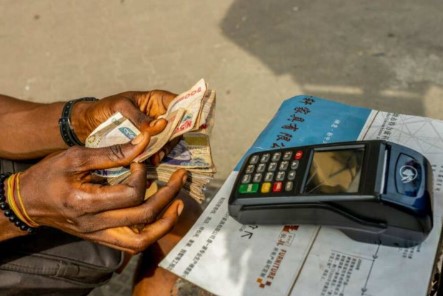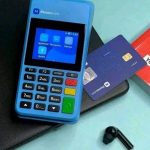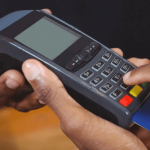Point-of-sale (PoS) operators across Nigeria have increased withdrawal charges from N100 to N150 or N200 for every N5,000 transaction.
The operators attribute the hike to the N50 electronic money transfer levy imposed by the Central Bank of Nigeria (CBN) on financial technology (fintechs) companies as well as the new transaction limit imposed on the PoS agents and their customers.
In September, fintech companies announced plans to introduce a N50 stamp duty fee on transactions of N10,000 and above.The technology firms said the move complies with Federal Inland Revenue Service (FIRS) regulations, noting that the fee will be applied to electronic transfers into personal and business accounts. On December 1, the federal government began enforcing the policy across fintech platforms such as OPay, Moniepoint, Kuda, and others.
Also, the CBN has recently set a daily withdrawal limit on PoS terminals to N100,000 per customer. The apex bank also limited the cash transactions of each PoS operator to N1.2 million daily. CBN said the restriction is in line with its ongoing efforts to advance a cashless economy. The CBN’s new directives—which will put 2 million agents under pressure—appear geared at limiting the influence of these agents. While the CBN’s supporters will argue that the new policy will curb fraud and promote a cashless economy, many agents believe it will slow down customer patronage.
The National President of the Association of Mobile Money and Bank Agents in Nigeria (AMMBAN), confirmed that the policy’s implementation has driven PoS operators to adjust their service charges.
“Yes, it is because of the electronic levy. We have to transfer the cost, the cost of the electronic levy that are being charged. It started immediately the FIRS implemented the directive of N50 charges,” Fasasi said. Fasasi clarified that the stamp duty is not a new policy but has only recently been extended to fintech operators, who dominate about 70 percent of the PoS agent market.
“Stamp duty is not new but the implementation has been partial. Only agents that are of banks origin… you know we have two types of agents. There are agents that are deployed by commercial banks, the UBA, Zenith and we have those that are of non-banks, that are of fintechs, like OPay, Moniepoint, Paga and Palmpay,” he said.
“Before now, only bank agents that are of bank origin are being charged N50 because the bank has implemented it for long. But now, the regulator has now extended it that whether you are fintech or anything, just go and charge that N50. So immediately they started… and you know they control the larger part of the agent space, about 70 percent. That is why it’s like a new policy.
“It is not a new policy but it’s because it is now being implemented by the majority of fintech. Then, the PoS agents have no choice than to also implement it immediately.”










